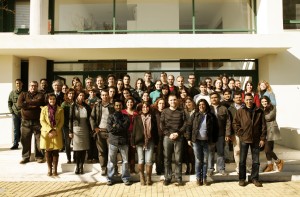
In 2008, the team led by Professor Elvira Fortunato of the Faculty of Science and Technology (FCT) of Lisbon’s Universidade Nova publicly announced the creation in a laboratory of the first paper transistors. Since then, they have participated in international projects with companies aiming to develop a paper with suitable properties for electronics.
This discovery was regarded as being revolutionary worldwide because “for the first time it was proved that cellulose paper could be considered an electronic material. To make a transistor, you need insulating, conducting and semi-conducting materials. In this particular case, the cellulose represents the transistor’s insulating material” Elvira Fortunato explains. It is a completely ecological technology because it uses cellulose as a raw material which is totally renewable. The remaining components used in “paper electronics” are also disposable, allowing them to be recycled, in contrast with conventional electronics. It lower cost “opens up other possibilities for use which are at present excluded by current technology”.
The FCT team is at present working on Portuguese and international projects in the field of electronic paper but also in “renewable energy with the development of new concepts of photovoltaic cells, electrochromic displays and quick diagnostic tests on paper for different infectious diseases”. As it is very recent, there are no products on the market yet which apply this technology but “we are close to doing something with a major Portuguese producer who does not make paper, but has an excellent vision of what is wanted for the future” Elvira Fortunato concludes.
 Eco123 Revista da Economia e Ecologia
Eco123 Revista da Economia e Ecologia

